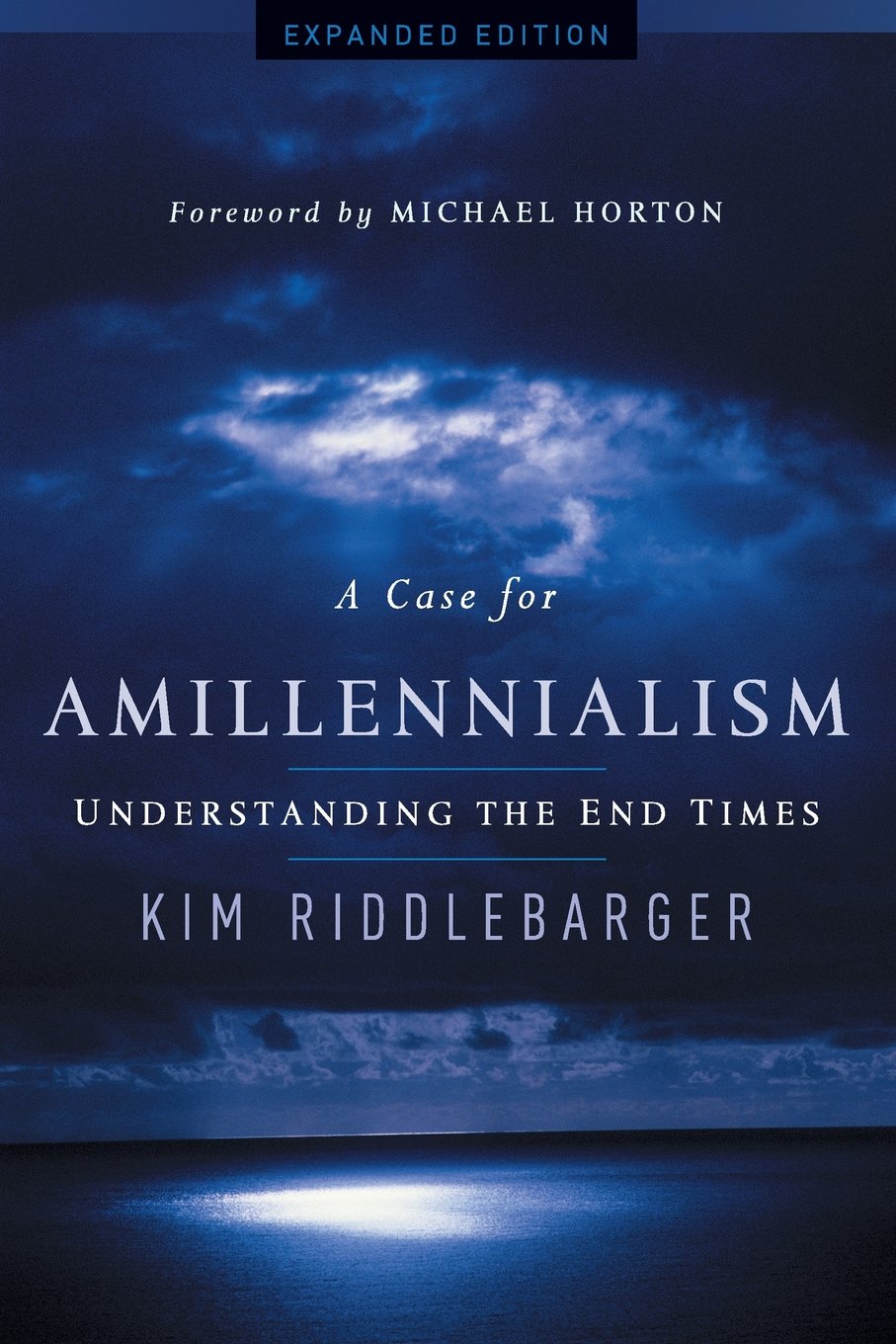Book Review: A Case for Amillennialism by Kim Riddlebarger
Many Christians do not see the importance of studying End Times. After all, what really matters is what the Bible teaches us about our salvation – the fall of man, the first coming of Christ, His life, death and resurrection, and how we may be saved through Him. Of course we all look to the time when He will come again, complete His work of redemption, and take us into glory to be with Him, but is it necessary to know how He will come again if we truly know that He will?

Pastor Kim Riddlebarger, in his book The Case for Amillennialism would argue that the answer is yes, explaining that, “There are consequences for our millennial views, and we need to be aware of them.”
With many of the doctrines of Scripture, Christians struggle with not only knowing what they believe, but why they believe it, often simply accepting what they have been taught through the broad evangelical spectrum, without really questioning it or prayerfully considering it through the lens of Scripture. This is especially true when it comes to the Biblical doctrine of eschatology, and this is a grievous mistake.
As Pastor Riddlebarger explains: “A truly biblical expectation for the future is centered in the Christian hope of Christ’s second coming. This means the Christian faith is thoroughly eschatological, and the subject of a millennial age must be considered from the perspective of the past, present and the future…Our redemption draws near as the days tick away before our crucified, risen, and ascended Savior returns.”
In other words, not only is our knowledge of the End Times significant, but it sheds light and culminates the glory of our redemptive past, present and future. It is not only real, it is relevant. It is not only our expectation, it is our only hope. Paul says that if we have no hope past the grave, then we are of all men most to be pitied (1 Corinthians 15:19). If Christ does not come again, then Christianity falls.
There are three main interpretations of the Biblical study of the end times: Premillennialism (Christ will come before the millennium), Postmillennialism (Christ will come after the millennium), and Amillennialism (this present age is the millennium, and it will be culminated at Christ’s return).
This book carefully analyzes all three, explains each one carefully, and draws a case for the latter view through a careful exegesis of Scripture. A dispensational premillennial for many years, Riddlebarger is cogently aware of the sincerity of committed Christians who hold to all three views.
No matter which end times view you hold to, this book is extremely helpful for a careful analysis of the strengths and weaknesses of the different interpretations, providing clarification, instruction, and food for prayerful thought and growth.
Riddlebarger explains that his purpose in writing this book is to “set forth the historic Protestant understanding of the millennial age,” explaining that, “This position is commonly known as amillennialism and is centered in the present reign of Jesus Christ. Amillennialism is grounded in redemptive history, the historical acts of God as they unfold in the Bible to provide for the salvation of His people.”
The book is divided in 4 parts. Part 1 defines key theological terms commonly used to describe different end time viewpoints, and explains the importance and manner of how we interpret the Bible, specifically grappling with how our preconceived ideas influence our understanding of the end times.
Part 2 develops the theme of the Bible and end time theology, drawing together the central line of Old Testament expectation, through the first coming of Christ, this present age, all the way up to our future hope in the age to come.
Part 3 discusses key biblical passages which speak on Christ’s second return, including the Great Tribulation in Daniel 9:24-27, The Olivet Discourse in Matthew 24 and Mark 13, the future of Israel in Romans 11, and the promises and symbolism in Revelation 20:1-10.
Part 4 evaluates the main problems of each millennial position (including amillennialism), and the central issues of discussion between the different views.
Why Should I Read It?
Because no matter what Christian denomination we associate ourselves with, or what end times view we hold, as Christians, we all believe one thing: Christ has come, and He will come again. That is our promise, our expectation, our hope, our future, and our glory.
It is this promise that gives us faith to press on through our present sufferings, knowing that “they are not worthy to be compared with the glory which shall be revealed in us” (Romans 8:18). It is this expectation of a Savior that enables us to eagerly wait, knowing that we are in this world but we don’t live here, for “we are citizens of heaven” (Philippians 3:20).
It is this hope that fills us with joy, for we are “more than conquerors through Him that loves us” (Romans 8:37). It is this future to which we look ahead, when He will “wipe away every tear from their eyes, and there will be no more death or mourning or crying or pain, for the former things have passed away” (Revelation 21:4). It is this glory which will be given us, for we will be “glorified in Him” (Romans 8:17).
How dare we ignore such a promise, when it is given by God for our benefit, written in Scripture for our understanding, and sheds light on the whole of our redemption in Christ? There is hope beyond the grave, and because of this we are not to be pitied.
Come and See, that with the whole of creation, we may cry: “Maranatha! Come quickly Lord Jesus!” (Revelation 22:20)

Great book. Riddlebarger does a great job explaining the Amil position in a humble and winsome way.